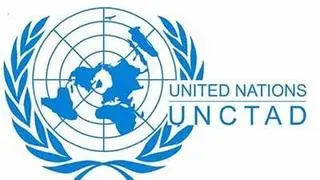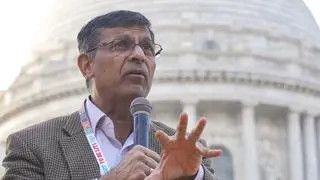From one of India’s poorest States, Chief Minister Manik Sarkar has catapulted Tripura into a major destination of industrial investment in the North East, in barely a decade. The State has implemented ONGC Tripura Power Co’s (OTPC) plant, the region’s largest power project, and also attracted investments to set up a major fertiliser facility. In an interview with Business Line, Sarkar speaks of his development initiatives. Edited excepts:
The OTPC power project is implemented. ONGC has committed fresh investment in a gas-based fertiliser plant. Has the industrialisation drive helped boost the growth of Tripura and the rest of the North East?
The advantages are obvious. With the 726.6-MW OTPC project in place, we will gain huge royalties on increased gas production. Moreover, the surplus power can be sold. There should be more job creation.
The benefits are not restricted to Tripura alone.
While setting up the largest power plant of the region, we insisted that the States in the region get due share of electricity.
Assam will get the maximum share of electricity, higher than Tripura, where the project is located.
We didn’t object to that. We wanted to share the benefits in mutual interests.
We are hopeful that the project will usher in a new phase of development in the region.
Moreover, this is not the end of the road. I am confident that OTPC will expand capacities. The fertiliser facility should help attract downstream units. And, the benefits will be accrued by the entire region.
How do you expect the State economy to grow in the future?
I don’t believe in making tall promises. We are taking some positive steps to usher in development. To attract industrial investment, we need development of infrastructure, including both power and transport logistics.
We have now created adequate power infrastructure. We are hopeful that this, coupled with the stable political atmosphere of the State, creates a congenial atmosphere for industry.
You have been a strong proponent of improved ties with Bangladesh. What is the role of Bangladesh in ensuring the growth of Tripura and the NE region?
The Palatana project is a hallmark of cooperation between India and Bangladesh, which ensured smooth passage of heavy project equipment and turbines to Palatana through its territory by road and waterways, from Haldia port in West Bengal. Without the active support of Bangladesh, it couldn’t have happened.
We were keen that India offers 100 MW of power – if necessary from Tripura’s share – from OTPC to Bangladesh. However, the proposal is yet to be taken forward.
Tripura is located hardly 72 km away from the deep-sea Chittagong port in Bangladesh.
We have huge gas reserves. Sharing benefits of industrialisation with the immediate neighbour can catapult Tripura into a gateway to the East. It would also offer new growth opportunities for the entire region.
Having come back to power in 2013, you declared tourism as one of the focus areas of the Government in this five-year term. Any step in this direction?
As part of our drive to develop destinations, we are now focussing on creation of tourist infrastructure, including accommodation. Our prime strength is in eco-tourism in the forest areas. To promote the same, we have just taken a cabinet decision to ensure that both forest and tourism departments join hands in infrastructure development.
Meanwhile, we have decided to promote Neelmahal water palace, approximately 50 km from Agartala, as a major tourist attraction.
It is a former Royal palace and the second largest of its kind after Jalmahal in Rajasthan. We have kick-started a ₹70-75-crore project for the improvement and beautification of the palace that represents an assimilation of Hindu and Muslim architecture.
The project will include reconstruction of the palace, upkeep of the lake and creation of accommodation facilities.
The Vice-President of India (Hamid Ansari) inaugurated the State museum in Aagartala last year. It is one of the finest museums in the North East. We are trying to upgrade it into a national museum.








Comments
Comments have to be in English, and in full sentences. They cannot be abusive or personal. Please abide by our community guidelines for posting your comments.
We have migrated to a new commenting platform. If you are already a registered user of TheHindu Businessline and logged in, you may continue to engage with our articles. If you do not have an account please register and login to post comments. Users can access their older comments by logging into their accounts on Vuukle.